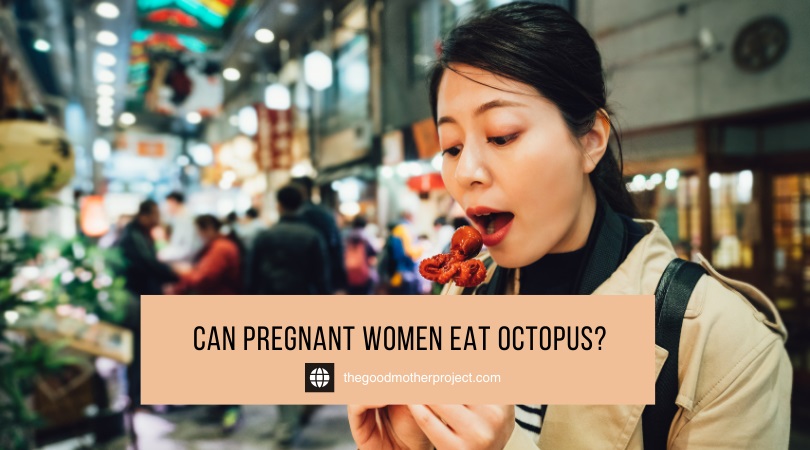Last Updated on January 6, 2025
Pregnant women can eat octopus, but moderation is key. Ensure it is well-cooked to avoid any health risks.
Octopus is a popular seafood choice, rich in nutrients like omega-3 fatty acids, protein, and vitamins. Many enjoy its unique flavor and texture in various dishes. Pregnant women often seek healthy meal options, but seafood can be tricky due to potential contaminants.
Some fish may harbor harmful substances, making it essential to choose wisely. While octopus can be a nutritious addition to a diet, pregnant women should prioritize safety. Cooking octopus thoroughly eliminates the risk of bacteria and parasites. Always consult a healthcare professional for personalized advice, ensuring both mother and baby remain healthy throughout pregnancy. Enjoying octopus occasionally can be safe and delicious.
Can Pregnant Women Eat Octopus?
Pregnant women often wonder about their food choices. One such question is about octopus. Is it safe to eat during pregnancy? Let’s explore this topic.
Nutritional Benefits
Octopus offers several important nutrients. These can be beneficial for pregnant women.
- High in Protein: Supports fetal growth and development.
- Rich in Omega-3 Fatty Acids: Supports brain health.
- Contains Vitamins: Includes vitamin B12 and vitamin E.
- Minerals: Provides iron and zinc, important for immunity.
| Nutrient | Benefit |
|---|---|
| Protein | Essential for growth |
| Omega-3 | Brain development |
| Iron | Prevents anemia |
| Zinc | Boosts immunity |
Potential Risks
Eating octopus during pregnancy has some risks. Pregnant women must be careful.
- Mercury Levels: Octopus can contain mercury. High levels may harm fetal development.
- Foodborne Illness: Raw or undercooked octopus can lead to infections.
- Allergies: Some people may have shellfish allergies.
Always choose well-cooked octopus. Avoid raw preparations to reduce risks.
Safety Tips For Eating Octopus During Pregnancy
Eating octopus during pregnancy can be safe with proper precautions. Pregnant women should focus on preparation and portion control. This ensures both mother and baby stay healthy.
Proper Preparation
Proper preparation is key to enjoying octopus safely. Follow these steps:
- Cook Thoroughly: Always cook octopus until it reaches an internal temperature of at least 145°F (63°C).
- Avoid Raw Octopus: Raw octopus can contain harmful bacteria or parasites.
- Wash Hands and Surfaces: Cleanliness prevents cross-contamination.
- Source Quality Octopus: Purchase from reputable suppliers. Freshness matters.
- Watch for Allergies: Be cautious if you have seafood allergies.
Recommended Portions
Portion control is important while eating octopus. Here are some guidelines:
| Serving Size | Recommended Frequency |
|---|---|
| 3-4 ounces | 1-2 times a week |
| More than 4 ounces | Avoid excess |
Eating octopus in moderation supports a balanced diet. Always consult with a healthcare provider for personalized advice.
Alternatives To Octopus For Pregnant Women
Pregnant women often seek safe food choices. Octopus may pose risks due to potential contaminants. Here are some great alternatives that are both safe and delicious.
Other Seafood Options
Many seafood choices are healthy and safe during pregnancy. Here are some options:
- Salmon: High in omega-3 fatty acids. Supports baby’s brain development.
- Sardines: Rich in calcium and vitamin D. Easy to prepare.
- Shrimp: Low in mercury. High in protein.
- Tilapia: Mild flavor. Safe for pregnant women.
Always choose fresh or frozen seafood. Avoid raw or undercooked options. Cook seafood to an internal temperature of 145°F (63°C).
Plant-based Alternatives
Plant-based foods offer excellent nutrition. They are safe and packed with vitamins.
- Quinoa: High in protein and fiber. A great grain choice.
- Chickpeas: Rich in protein. Versatile for many dishes.
- Tofu: Good source of protein. Can be added to stir-fries.
- Spinach: Full of iron and calcium. Perfect in salads.
Incorporate these foods into your meals. They provide essential nutrients for both mother and baby.
Frequently Asked Questions
Can Pregnant Women Eat Seafood?
Pregnant women can eat seafood, but should choose low-mercury options. Octopus is generally considered safe in moderation.
Is Octopus Safe During Pregnancy?
Octopus is safe to eat during pregnancy if cooked properly. Avoid raw or undercooked preparations to reduce risks.
What Are The Benefits Of Eating Octopus?
Octopus is high in protein and low in fat. It’s a good source of omega-3 fatty acids, beneficial for fetal development.
How Should Octopus Be Prepared For Pregnant Women?
Cook octopus thoroughly by boiling or grilling. Ensure it reaches an internal temperature of 145°F (63°C) for safety.
Are There Any Risks Of Eating Octopus While Pregnant?
Risks include mercury exposure and foodborne illnesses. Always choose fresh, well-cooked octopus to minimize these risks.
Can Pregnant Women Eat Raw Octopus Sushi?
Raw octopus sushi is not recommended during pregnancy. Consuming raw seafood increases the risk of infections and foodborne illnesses.
Conclusion
Pregnant women can enjoy octopus in moderation. It’s a source of protein and omega-3 fatty acids. Always ensure it’s cooked properly to avoid potential risks. Consulting a healthcare provider is wise before making dietary changes. Enjoying seafood can be safe and beneficial during pregnancy with the right precautions.








